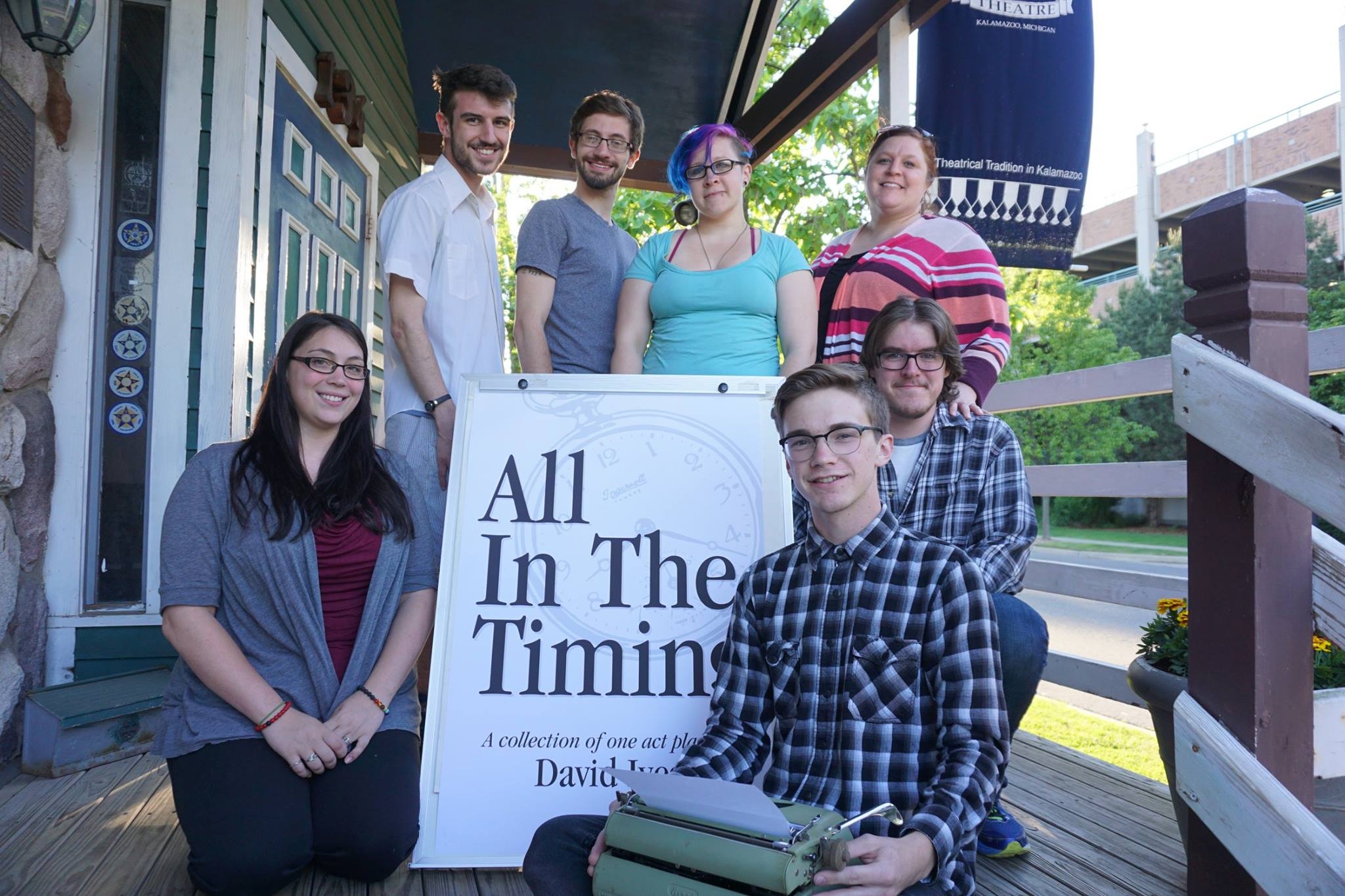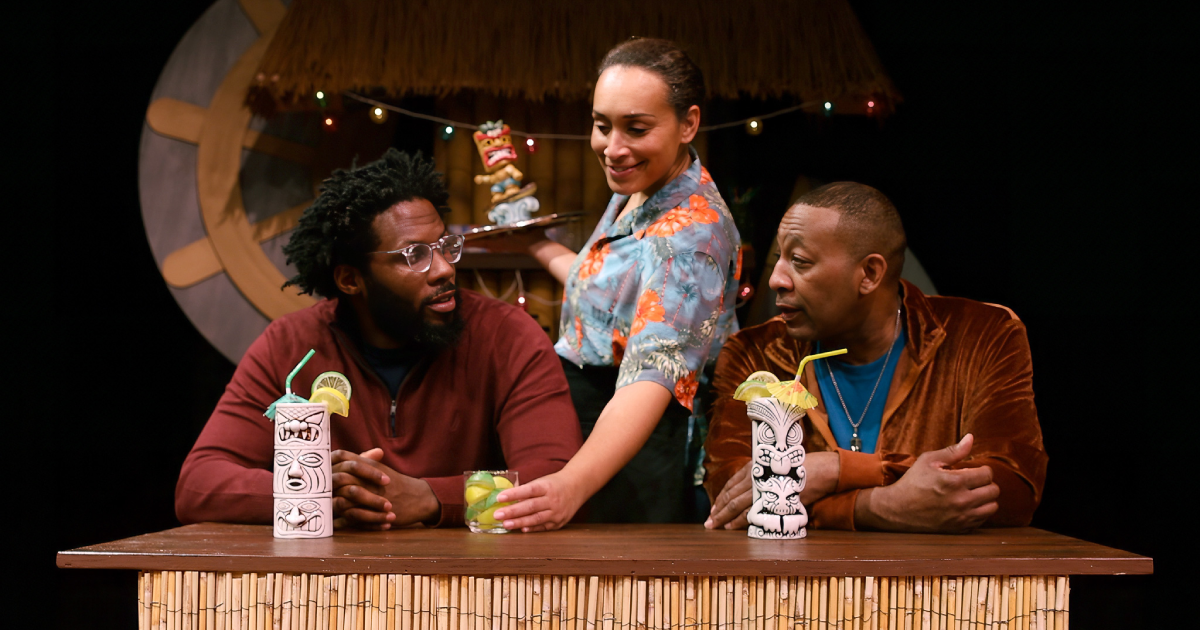In “All in the Timing,” David Ives’ 90-minute collection of six comic sketches, time circles back on itself, language is meaningless, monkeys as would-be Shakespeares overcome the death stare of the blank page, and the entire enterprise of human communication, not to mention the meaning of life and death, are called into question.
It’s absurd, highly amusing existential angst put on stage, and yet it doesn’t require a doctorate in philosophy to appreciate. It’s a little bit New York City, but more Saturday Night Live than Woody Allen. And it’s a bit of a departure for Kalamazoo’s New Vic Theatre, but it fits them and this exceedingly talented cast of seven to a T.
With a faux exposed-brick backdrop, a few tables and chairs, lights that are either up or down, some effective sound effects and snippets of carefully chosen music during transitions, along with simple costumes and props, Director James Furney’s minimalist production keeps the focus on its subject: language and its delivery. And that’s exactly as it should be.
The show had its Off Broadway premiere in 1993 and was written between 1987 and 1993, though the material is pretty much timeless. Born in 1950, David Ives has been described as the “maestro of the short form,” and though the playlets that make up this play do not strictly adhere to a classic narrative structure (and neither does the overall play, for that matter) with a clear beginning, middle and end, they’re deeply satisfying, in part, for that very reason. One thing leads to another tangentially, and it feels as if there’s no discernible end until it’s actually over. In that way, it mirrors life.
Broken into two acts, the first half explicitly highlights language, and the second half veers more into the territory of space and time. It seems like heady stuff, but with silly and gracious humor, the bigger ideas become relatable.
In Sure Thing, the opening sketch, the first moments of a would-be first date play out over and over again, with a bell ring at each failed utterance, until the potential couple speaks the things that keep them moving forward. It’s impossible not to enter the scene as one might have in life; cringing alongside the characters for their missteps and wanting them to get it right. And it turns the awkwardness of first conversations into what they often feel like: boxing matches.
The success of such a scene is, indeed, all in the timing, and Anna Mundo and Brian Wiegand absolutely nail this sparring match. They’re quick, charming and fully committed to their respective characters from the get-go, and they set the tone for the rest of the show.
Anna returns for the start of Act II as a clinician who hypothesizes the first three minutes of any conversation determines the two interlocutors’ destiny together, and then analyzes the subtext of a given first conversation; it’s a clever verbal duet with expert commentary.
Brian Wiegand returns in two of the most successful sketches. In The Universal Language, he plays a pop-up professor of Unamunda, Ives’ version of Esperanto, in which “velcro” means “welcome” and “Harvard U” translates as “How are you?” Lisa Ouellette convincingly plays his unsuspecting student who masters the language within minutes. It’s a delightful scene that exposes the absurdity of language, that any word could be a signifier for anything if that’s how we learned it.
In The Philadelphia, Wiegand, with his lanky physicality and expressive face, creates a character for whom nothing is going his way. Whatever he asks for, he receives the opposite; he just can’t get a break, and his friend names his condition as being in The Philadelphia, a kind of metaphysical black hole. The friend, expertly performed by Alec Olweean, acknowledges that he himself “woke up in a Los Angeles today, and life is beautiful . . . everybody’s got to be someplace.” The humor is very New York, but not too New York for Kalamazoo, and again, the verbal sparring is delightful.
Other sketches, including one with three monkeys at typewriters in an experiment to discover which one will compose Hamlet, and another about the day Trotsky died replayed on a kind of loop, aren’t quite as effective as the others, but are amusing nevertheless.
Ultimately, this smart little play provides entertainment that’s a nice antidote to the usual summerstock fare of big musicals that abound this time of year. The comedy sketches offer both thought-provoking brainteasers as well as big laughs. It’s a sweet alternative summer escape well worth the time.
All in the Timing
June 23-July 22
thenewvictheatre.org





